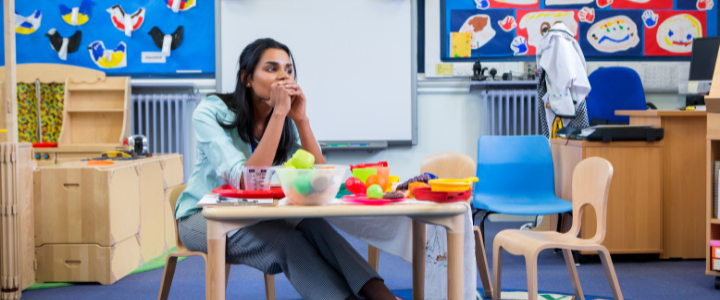Turn on the television, listen to the radio, pick up a newspaper or log on to your favorite social media website. You, and students, will see opposing views and lively debates, some articulated respectfully and others…not so much. In a society fraught with disagreement, it is important that we teach our students about tough topics and how to engage in civic discourse. This may take place through planned activities or it may be more spontaneous, but if you are prepared, you will have great opportunities to teach skills that could last a lifetime.
The goal here is not to teach debate skills and make sure students believe what you or others do, but to truly ensure we are preparing democratic citizens. Students must learn to respect facts, demonstrate empathic listening, and legitimately search for the common good. As teachers, we have a chance to provide learning opportunities for students to view issues from many lenses giving each fair consideration. We also want our students to be able to develop an informed opinion, state it, and provide reasons for their opinion.
Teaching tough topics is NOT easy, but here are a few tips to get you moving in the right direction:
Before you even consider teaching these topics:
Build a positive classroom climate. Your focus from the beginning of the year should be to develop a safe space where open, honest communication is the norm. Students and teachers should demonstrate mutual respect, and curiosity and vulnerability should be encouraged.
Explicitly teach social and emotional competencies. Self-awareness, self-management, social awareness, relationship skills, and responsible decision making go hand in hand with tackling tough topics in the classroom especially when it is likely to include varying opinions.
Directly teach students how to participate in civil discourse. If the students have the skills and the tools beforehand, the conversations will be more effective, and more learning will take place.
Remember, a person’s views do not develop overnight and so it’s imperative to understand that teaching these concepts can be a long-term project. A good place to start is teaching our students to respect and understand the modern impact of historical events and policies. Discussing current events around the country, and world, provides an opportunity for students to practice the skills they need during difficult dialogues. Check out this great resource from Vanderbilt which serves as an excellent list of tools and strategies for leading difficult discussions.
Prepping for a planned discussion:
Make sure your conversations, topics, and activities are developmentally appropriate. Remember, you don’t have to tiptoe, but you also don’t have to dig too deep.
Let parents and guardians know you will be facilitating discussions around challenging topics. Share the goal of the activity and provide information on how you will keep the conversations and the students safe.
Be aware of your individual student’s triggers. Some may have experienced trauma that is closely related to the topic you are planning to discuss. Proactively develop a plan if the student does not want to participate OR needs to take a break.
Chat with a colleague to run through possible scenarios and to develop a few strategies to handle tough questions or disagreements. Know your boundaries and share them with the students before you start. Be specific about what will not be tolerated.
Plan ahead for scaffolds, accommodations, and modifications some students may need to participate.
Instructional strategies to consider:
Consider using literature to begin the conversation. It allows students a smooth transition into a topic that might be intense and provides opportunities for them to develop connections before the conversation starts.
You might also try micro-labs which are small groups for speaking and listening. Micro-labs create practice opportunities for speaking AND listening, but in safe numbers.
Socratic seminars lend themselves well to civic discourse. Your students will have an opportunity to look at issues from multiple perspectives.
Not every student will feel comfortable speaking. Provide a chance to participate in a way that is not verbal. Writing questions, voting on a topic, or using an online discussion forum allows participation without expecting a student to speak.
Teaching tough topics and engaging your learners in challenging conversations is NOT simple, but it is necessary and beneficial to the learner. By using some of these tips and strategies, you can plan and implement activities that will have lifelong, positive impacts on your students as democratic citizens.






